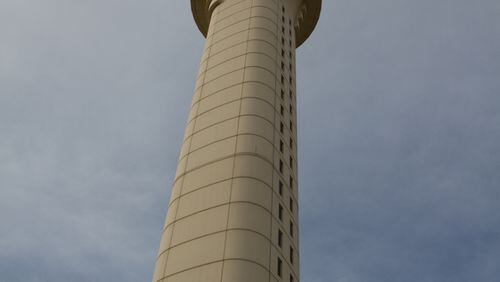As members of Congress debate a proposal to spin off air traffic control from the federal government, both sides argued about how best to manage the system that handles flights around the country.
"Delays, congestion and inefficiency cost our economy $30 billion a year," said Rep. Bill Shuster, R-Pa., chairman of the U.S. House transportation committee, who introduced the legislation to transfer air traffic control from the Federal Aviation Administration to a non-profit corporation. "Unfortunately, FAA has proven it can't modernize the air traffic system." The House transportation committee is holding a Wednesday hearing on the proposal.
Credit: Kelly Yamanouchi
Credit: Kelly Yamanouchi
Atlanta-based Delta Air Lines opposes Shuster's idea to spin off the air traffic control system, putting Delta at odds with other airlines.
A spinoff would likely "make it more expensive to fly," wrote Delta CEO Richard Anderson in written testimony. The FAA's costs per flight hour are below the international average, according to Delta.
The problems that spurred the spinoff proposal include uncertainty of FAA funding due to sequestration, furloughs and the threat of government shutdowns.
The National Air Traffic Controllers Association union supports the spinoff idea, saying today, "we no longer have a stable or predictable funding stream and this uncertainty has caused many serious problems for the system."
But those in opposition say air traffic control policy decisions should remain with elected representatives, not a private company.
Anderson testified that under a privatized air traffic control system, rural areas, general aviation and others that bring in less revenue to an air traffic control corporation "will likely suffer -- in the same way that private investment decisions have left rural Americans with inadequate broadband access."
And in a comparison to a scenario Delta is particularly familiar with, Anderson wrote that although the bill requires that fees and charges will not determine who can access the airspace, "That's like saying that whether you have a first-class or economy ticket is not 'determinant' of whether you can get on a plane -- it's true, but it still makes quite a bit of difference."
Shuster and supporters say other countries have privatized their air traffic control systems with success, including Canada.
In response, Anderson testified: "Making decisions for U.S. airspace based on what works in Canada makes as much sense as New York City (8,490,000 people) modeling its municipal services on what's working well for Winnipeg (660,000 people)."
Delta last year split from its industry group Airlines for America, which supports the proposal to spin off air traffic control.
"We can no longer afford to embrace a status quo that has not worked, is not working and is not capable of supporting such a critical driver of our economy in the future," Airlines for America CEO Nicholas Calio testified.








